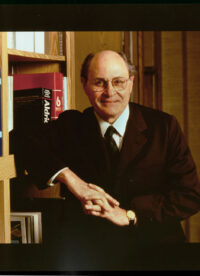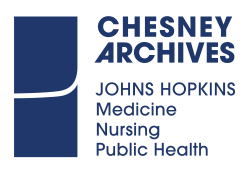Daniel Nathans Collection

Daniel Nathans
unknown photographer
Collection Overview
Creator: Nathans, Daniel (1928-1999)
Collection Date: 1951-1999
Extent: 140 cubic feet (110 boxes)
Biography
Daniel Nathans was born in Wilmington, Delaware. He was the youngest of eight children of Russian Jewish immigrants Samuel and Sarah Nathans. He received his BS in Chemistry from the University of Delaware in 1950. He then went to the Washington University School of Medicine in St. Louis where he was introduced to laboratory research working with pharmacologist Oliver Lowery. After receiving his MD in 1954, he served an internship at Columbia Presbyterian Hospital under Robert Loeb. Before returning to Columbia Presbyterian for a two year residency, Nathans was a Clinical Associate at the National Cancer Institute at the National Institutes of Health in Bethesda, Maryland. From 1959-1962, he was a research associate in Fritz Lipman’s lab at the Rockefeller Institute in New York where he conducted research in the burgeoning field of molecular biology.
Scope and Content
The Daniel Nathans Collection documents his entire career. Included are lab notebooks, reprints, reports, correspondence, photographs, and administrative documents. Laboratory notebooks make up a significant portion of the collection and document his research using bacterial viruses, tumor viruses (especially SV40), and use of restriction enzymes. The administrative documents cover his roles as chairman of the Department of Microbiology, later Molecular Biology and Genetics, senior investigator of the Howard Hughes Medical Institute, and Interim President of the Johns Hopkins University.
The collection includes memorabilia relating to the 1978 award of the Nobel Prize in Medicine to Daniel Nathans and Hamilton O. Smith for their discovery of restriction enzymes and the application of their discovery to molecular genetics. Included among the memorabilia are 10 photographs of the award ceremony, flags and a Nobel medal, press releases, reprints of their restriction enzyme research, articles by A. McGhee Harvey on Nobel Prize winners from Hopkins, and a transcript of a faculty meeting address, October 1978, at which both Nathans and Smith spoke about their work.
Additional Links
Profiles in Science exhibit on Daniel Nathans at National Library of Medicine
